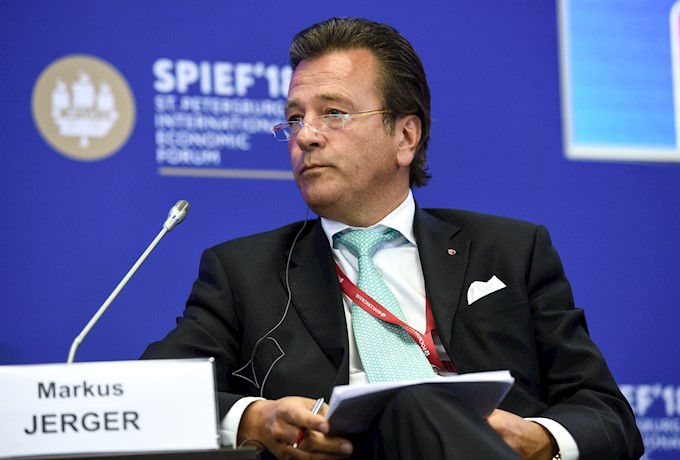
Final Topic of SME Forum: Promoting Image of Entrepreneur
On 23 May, the final part of the Russian Small and Medium-sized Enterprises Forum, which is a part of SPIEF, was the plenary session called Engaging in Entrepreneurship. The discussion focused on the measures that need to be taken to improve the image of an entrepreneur, which are supposed to result in more people wanting to start their own business. This session was moderated by Alexei Komissarov, Provost and Director of the Graduate School of Public Administration at the Russian Presidential Academy of National Economy and Public Administration.
According to Alexander Kalinin, President of OPORA ROSSII, All-Russian Non-Governmental Organization of Small and Medium-Sized Businesses, generally Russians have a positive attitude towards small business. “Over the last 30 years, the country has formed a fairly big segment of small business. People are positive about it,” – stated Alexander Kalinin. However, 95% of companies in this segment are microbusinesses. Additionally, capitalization of small and medium businesses in Russia is significantly lower than abroad. Mr. Kalinin believes there’s no wide-scale acceleration. As he explains it, this segment needs to attract at least 1million more people in order to hit the small and medium business development goals.
Alexander Braverman, General Director and Chairman of the Board of Russian Small and Medium Business Corporation (SMB Corporation), Svetlana Chupsheva, General Director of the Agency for Strategic Initiatives to Promote New Projects, talked about real measures to support small business. They include creation of relevant infrastructure, help in attracting investment and access to public procurement system. “SMB Corporation achieved enormous results over the last years. We know it from the surveys we do all over the country. As for our Agency’s programmes to involve people in business, we see a certain void in training and accelerating programmes,” – noted Svetlana Chupsheva. She also referred to the Internet Initiatives Development Fund and the Foundation for Social Entrepreneurship as examples.
Marcus Jerger, Chief Executive Officer of German Association for Small and Medium-sized Businesses (BVMW), shared international experience in developing small business. “If you cultivate and foster a small business, it will grow into a large company in the future,” – emphasized Marcus Jerger. He also appealed to representatives of Russia and Germany to unite their efforts and keep strengthening economic ties between their countries despite any political issues or disputes.
Russian regions were represented by Anatoly Artamonov, Governnor of Kaluga Region, and Sergey Morozov, Governor of Ulyanovsk Region. According to Anatoly Artamonov, the government can make an important contribution to developing the SME by helping with business training. Additionally, he urged the government “to tone down a disrupter’s itch”. “It’s hard to get experienced, when the rules of the game change all the time. If we ask small business to believe in our rules, just let them be for at least five or ten years,” – explained Mr. Artamonov.
In his speech, Sergey Morozov focused on the following idea: “yesterday’s formula for success becomes today’s recipe for a failure”. That’s why Ulyanovsk Region implements projects that stimulate business climate digitalization, while local school are the first in the country to start universal entrepreneurial training.
Other participants of the session included: Dmitry Mednikov, Deputy General Director of the Russian Television and Radio Broadcasting Company; Andrei Vanin, General Director of Delovaya Sreda; Anatoly Popov, Senior Vice President and Head of Corporate Business Block at Sberbank; Konstantin Suntsov, Founder of Beauteam Holding Company; and Ayaz Shabutdinov, Founder of the ‘Like’ Centre. Concluding the session, Oleg Fomichev, State Secretary – Deputy Minister of Economic Development of the Russian Federation, emphasized the importance of promoting small business. “We really don’t want to wrap up this whole story in bureaucracy. When we just start a standard government programme with an action plan and executive offices in charge. We will never be able to promote small business this way,” – noted Mr. Fomichev. “Now TV tells us one’s a good person despite being a business person. While what they need to show is that one is a good person, because he or she is a business person.” – summed up Oleg Fomichev.








